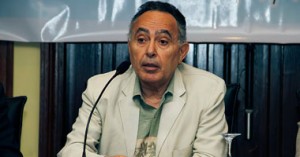Egypt’s Attack on Civil Society*
Compared with some of my fellow Egyptians, I have been lucky. I have received only death threats. Some of my countrymen and women have lost their lives in the struggle for freedom and dignity.
My first death threat came 25 years ago from a group of Islamists known for violence. The second came from the government, only two weeks after the inauguration of President Abdel Fattah el-Sisi in 2014. My crime: defending human rights.
For over 60 years, military strongmen and Islamists have hindered Egypt’s progression toward modernity, partly through hostility to human rights. The death threats against me are but one small example.
Initially, I didn’t take the government’s threat seriously, but soon enough I realized my life could be in danger. Since the military takeover in 2013, tens of thousands have been imprisoned or sentenced to death in what the United Nations has called a “mockery of justice.” Hundreds have disappeared since the beginning of 2015, including many minors. Extrajudicial killings and systematic torture leading to death in detention centers are common. And there was the terrible Rabaa massacre in August 2013, which left around 1,000 civilians dead, mostly supporters of the Muslim Brotherhood. (It was a brutal turn given that the Brotherhood had colluded with the military during its crackdown on young people and Christians after the 2011 uprising.)
The men, women and minors who are victimized are a cross section of Egyptian society. They include liberals, Islamists, Christians, students, journalists, artists, unionists and academics. For those of us who have worked to improve civil society, the current situation is the worst in the country’s modern history. General Sisi’s false promises of stability initially drew broad support. But his bloody record, his failure to combat terrorism and his mismanagement of the economy have fueled popular discontent.
The Cairo Institute for Human Rights Studies, of which I am the director, was the first organization to warn of the military establishment’s intention to seize power. It also anticipated the current crackdown, and relocated most of its activity to Tunis two years ago. I now live in exile.
After the Rabaa massacre, my worst fears came true. In October 2013, I tried to facilitate a dialogue between the military and the liberals. The military rejected the offer and effectively outlawed protests, allowing the imprisonment of thousands of Egyptians. My son-in-law is one of those arrested and is serving a five-year sentence for protesting the military trial of civilians.
When the Supreme Council of the Armed Forces took power, rights organizations were at the top of its hit list for their role in mass street demonstrations in 2011. After becoming president in 2014, General Sisi forced most international groups to leave Egypt, and within four months, he had amended the law to allow him to imprison the leadership of rights organizations for up to 25 years.
For 18 years I was banned from entering Tunisia because of campaigns I organized with human rights activists there. But when I returned there after its revolution in 2011, the president sent for a car to pick me up to meet with him at Carthage Palace. And despite our political differences, I was received by the moderate Islamist leader Rashed Ghannouchi at his home and office several times.
Last month, an Egyptian court approved the government’s request to freeze the assets of the Cairo Institute, my personal assets, and those of two other human rights groups. The Sisi government is prosecuting dozens of organizations and hundreds of human rights advocates with the aim of eradicating the Egyptian human rights community. This marks the beginning of a new, more bitter chapter in our struggle.
I’m not sure what the government is hoping to accomplish by freezing the institute’s assets, since it has no material assets. It is an institution devoted to furthering human rights in the Arab world, doing research, disseminating information, and educating young people. In 22 years, hundreds have graduated from its annual students’ summer course, and later worked in key positions in the organization and at other cultural, political and arts groups.
The institute is the largest publisher of human rights books in the region, and has held dozens of workshops, seminars and conferences in Cairo, Beirut, Tunis, Khartoum, Casablanca, Paris, Brussels, Geneva and New York. It also has an office in Geneva to facilitate and coordinate the work of Arab rights organizations with the United Nations Human Rights Council, in addition to a representative to the European Union in Brussels. How could one freeze such “assets”?
The only true assets we possess are ideas, among them a belief in freedom and the rights of men and women to live in a civil society that respects the rule of law. Our greatest asset, which General Sisi will never be able to touch, is the legacy of the past 22 years of investing in the minds of the next generation of Arab leaders.
(Bahey eldin Hassan is the director of the Cairo Institute for Human Rights Studies.)
*This opinion article is published originally in the New York Times International Weekly, at http://nytweekly.com/columns/intelarchives/10-14-16/
Share this Post

